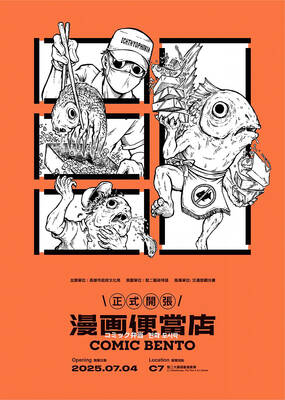An adventurous English friend named Belinda, searching some years ago for sensual ecstasy in the East, once described finding a special salon in upcountry Thailand, where she was invited to allow herself to be restrained quite naked on a cedar table and have three young female attendants gently apply a sweet-smelling unguent to her more delicate parts.
The trio silently withdrew, bidding my friend to keep still. Seconds later she heard a door slide open, then a rushing sound, and felt the air itself throbbing with movement. She was then swiftly overcome by pleasing physical sensations of an almost unbearable intensity.
She lifted her head slightly, and was just able to see why: portions of her body had become suddenly covered with thousands upon thousands of brilliantly colored captive butterflies. All of them were engaged in licking away the ointment with what felt, as she later said dreamily, like a million tiny tongues.
Things like this just don’t seem to happen in Dubuque or Stow-on-the-Wold. And as Richard Bernstein suggests in his provocative and intriguing book, The East, The West, and Sex: A History of Erotic Encounters, it is tales like this that over the years have helped construct today’s notion of the East as a sensual and sexual paradise. Tales of the odalisque, the harem, the seraglio, the concubine, the geisha and the Kama Sutra have all become combined in the past century or so into a sweetly perfumed melange of exoticism and eroticism, presenting “the Orient” as a realm of languor and loucheness, where concupiscent curds run in the streets and nostalgie de la boue is perfectly de rigueur.
This idea — of the East as the center of a “harem culture” so enticingly different from what is parodied as our own Judeo-Calvinist dreariness — has captivated Westerners since the first imperialists planted their flags in the heat and dust of far away. In recent years, however, it is a notion that has spiraled frighteningly out of control. Nowadays there is precious little that passes for romance about the picture: The charming 19th-century image of Kipling’s temple girl at the old pagoda in Moulmein, the “neater, sweeter maiden in a cleaner, greener land,” has been replaced by today’s obese American pederast trolling for catamites in the bars of Zamboanga, or of middle-aged sex tourists buying infants in Phnom Penh or on the beaches outside Colombo.
Precisely how we regressed from the delights so well-described by writers like Gustave Flaubert a century and a half ago — times when, dare one say it, true love did occasionally blossom among the bougainvillea and the date palms — to the grim realities of today’s meat markets in Thailand and the Philippines is the main thrust of Bernstein’s properly high-minded book. That we get rather less than a fully considered answer — but a good deal of alluring and titillating description in its place — is the single shortcoming of a book that is based on a very good and eminently discussable idea.
Bernstein, a columnist for the International Herald Tribune, sees Richard Burton, a British Arabist, as perhaps most to blame, being among the first to popularize the notion of the East as offering an endless procession of licentiousness and abandon. As Burton saw it, India, the Middle East and Africa were places where, in Bernstein’s words, “the cultivation of love far surpassed the low and unsatisfactory levels attained in frigid, Christian Europe.” He adds, “The East was a place where the erotic and the poetic mingled, where, stripped of its taint of immorality, it could be the subject of a kind of connoisseurship, a learned cultivation.”
Burton’s translation of The Arabian Nights gave us Scheherazade and Sinbad and Ali Baba, of course, but it also gave us what Philip Larkin later hinted at with his poem relating the “16 sexual positions on the sand”: the idea that the conquest of the hot and distant could be made a lot more bearable for the visitor if one only got to understand the locals’ curious customs.
And though white imperialists did plenty of frightful things, a good many of their accounts speak of their total enthrallment with what they found: the Taoist idea that intercourse, for example, permitted a man to absorb life-enhancing yin forces, undeniably offered a degree of justification for foreigners to have a great deal of fun. Steadily, from soldiers and district commissioners, this habit passed downstream and into the world of commerce: “Do anything you like out there, old boy,” was for decades the watchword of all the great British China trading companies, even when I lived in Hong Kong a decade ago. “Whatever you like — so long as you don’t bring it home.”
Perhaps that is when it all began to change; perhaps it was long before the wars, in Japan and Vietnam, that brought so many sex-starved soldiers into contact with this apparently magical world. Perhaps the change happened when rich young businessmen, men armed with cash rather than carbines, came East and began to wield more freely what this exchange between Western men and Eastern women was already truly all about: power.
For that is what this book seems to miss, or if not to miss, then not to make as obvious as it should be. Perhaps there is a kernel of truth, as Bernstein observes, that “the sexual advantage of the Western man in the East is an aspect of Western dynamism, the questing spirit of Europeans, compared with the relative passivity of Asian in these matters.”
But some will find this an almost insultingly trivial explanation, compared with what is a far more tragic certainty: that whether these sexual transactions occurred centuries ago and involved a sultan with his harem or a daimyo with his geisha, or whether they took place during the Vietnam War and involved a GI with his Hong Kong go-go girl, the central truth is always the same. The transactions have always ultimately been based on the same pathetic reality: poor women — and lots and lots of them in those countries that have large populations and place too little value on the female sex — must peddle their bodies and their dignity to whomever has the power to demand them.
In recent years Eastern entrepreneurs, perhaps the tawdriest of all players in an increasingly tawdry business, have cashed in on the trade, creating for millions of foreign visitors the fancy that what is on sale in today’s bars and brothels is somehow mystical, magical and a traditional sacrament of the Orient. It isn’t: It is every bit as much about power and exploitation as if it took place on Eighth Avenue or north of King’s Cross Station. There is absolutely nothing Eastern, nothing magical and nothing exotic about it. It is all just quite desperately sad.
Simon Winchester is the author of The Professor and the Madman and, most recently, of The Man Who Loved China.

From the last quarter of 2001, research shows that real housing prices nearly tripled (before a 2012 law to enforce housing price registration, researchers tracked a few large real estate firms to estimate housing price behavior). Incomes have not kept pace, though this has not yet led to defaults. Instead, an increasing chunk of household income goes to mortgage payments. This suggests that even if incomes grow, the mortgage squeeze will still make voters feel like their paychecks won’t stretch to cover expenses. The housing price rises in the last two decades are now driving higher rents. The rental market

Fifty-five years ago, a .25-caliber Beretta fired in the revolving door of New York’s Plaza Hotel set Taiwan on an unexpected path to democracy. As Chinese military incursions intensify today, a new documentary, When the Spring Rain Falls (春雨424), revisits that 1970 assassination attempt on then-vice premier Chiang Ching-kuo (蔣經國). Director Sylvia Feng (馮賢賢) raises the question Taiwan faces under existential threat: “How do we safeguard our fragile democracy and precious freedom?” ASSASSINATION After its retreat to Taiwan in 1949, the Chinese Nationalist Party (KMT) regime under Chiang Kai-shek (蔣介石) imposed a ruthless military rule, crushing democratic aspirations and kidnapping dissidents from

It looks like a restaurant — but it’s food for the mind. Kaohsiung’s Pier-2 Art Center is currently hosting Comic Bento (漫畫便當店), an immersive and quirky exhibition that spotlights Taiwanese comic and animation artists. The entire show is designed like a playful bento shop, where books, plushies and installations are laid out like food offerings — with a much deeper cultural bite. Visitors first enter what looks like a self-service restaurant. Comics, toys and merchandise are displayed buffet-style in trays typically used for lunch servings. Posters on the walls present each comic as a nutritional label for the stories and an ingredient

Fundamentally, this Saturday’s recall vote on 24 Chinese Nationalist Party (KMT) lawmakers is a democratic battle of wills between hardcore supporters of Taiwan sovereignty and the KMT incumbents’ core supporters. The recall campaigners have a key asset: clarity of purpose. Stripped to the core, their mission is to defend Taiwan’s sovereignty and democracy from the Chinese Communist Party (CCP). They understand a basic truth, the CCP is — in their own words — at war with Taiwan and Western democracies. Their “unrestricted warfare” campaign to undermine and destroy Taiwan from within is explicit, while simultaneously conducting rehearsals almost daily for invasion,